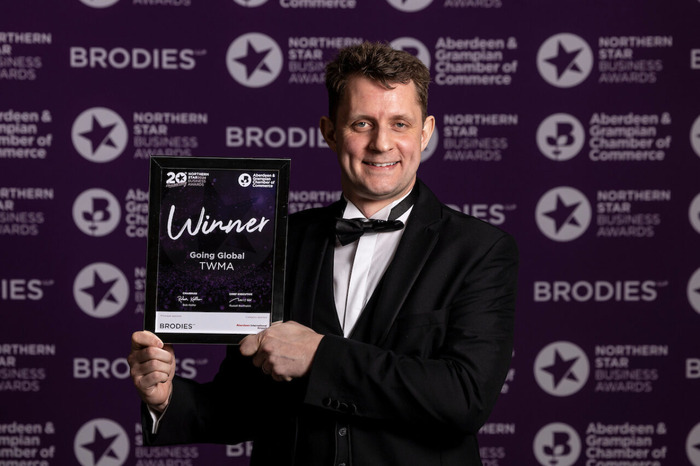Many of us have excellent ideas for food and drinks products. Perhaps you have a family recipe that could be a winner. Or perhaps you’ve got a new technique for improving flavours and textures. Of course, the difference between creating a delicious treat at home and launching your own food or drink company is huge so there’ll be a lot to think about.
Entrepreneurs need to approach food and drinks manufacturers to produce the product at scale. This is not straightforward. You want to make sure that the final product tastes as good as it did in your kitchen while also ensuring that the financial aspects of the deal give you an acceptable profit margin.
For all four of the snacks brands I’ve launched over the past five years, ensuring a high-quality flavour without the need for additives is the unique point of differentiation. For this reason I put a lot of time into finding the right manufacturer for our products. Let me share my top tips to help you on your way:
The right approach for the size of manufacturer
Small manufacturers and large manufacturers will need differences in your approach to negotiation.
Small manufacturers will usually be more flexible, more willing to help with product development, and able to handle small order volumes. They are usually more expensive, however, and could struggle to meet larger volumes.
Larger manufacturers, on the other hand, will often be able to deliver the best prices but they often need larger volumes. As a result, you will need to be more bullish with your forecasts. I suggest you get onto Companies House and investigate their accounts to help understand their business before you reach out.
Speak to lots of people
One of the most important pieces of advice I can offer is to speak to as many manufacturers as possible, especially if you have no prior experience in the industry.
Start by talking to smaller manufacturers to learn the process and find out how they might be able to help with product development. Then go on to speak to larger manufacturers to discover their volume requirements and the price difference.
It’s vital, especially in the early days, to be able to leverage your position to get the best pricing, and the best way to do this is to have as many options on the table as possible. By shopping around you will discover what is available, what the key points of differentiation are, and be able to plan a number of scenarios.
Know the jargon
The more knowledgeable you sound, the more you’ll be taken seriously. Do your best to understand the jargon before you reach out.
Read books, trade publications like The Grocer, and as many other trade publications as you can and try to brush up on the relevant food law as well as general industry lingo. Terms like “ex-works” are alien to newcomers but are basic terminology in the industry.
Using the wrong word or being caught out on a piece of law may seem like a relatively minor error but companies may use that as a signal that you’re new to the industry and take advantage. A little research will go a long way!
Don’t be over-demanding
Manufacturers don’t like hassle. They are in the business of “making it” and then “shipping it”. Going in with a long list of complex demands straight out the gate will likely put them off working with you.
It helps to be as flexible as possible. Many manufacturers are put off by complex projects. So, at least at the start, make your project sound as simple and easy as possible, and wait until the second or third meeting to introduce complexity.
Start by defining the absolute essential aspects of your product, things that are fundamental to your brand. With Awfully Posh, for example, it was essential for the pork scratchings to be full of flavour without any additives. Aside from these considerations, which comprised our USPs, I could be fairly flexible. As such, it was relatively easy to find a manufacturing partner.
Sell your brand vision
You need your manufacturer to believe in your vision, especially if you are pre-launch. Make sure you come prepared with a detailed strategy and share as much of it as you can with your potential manufacturing partners. Obviously, there will be aspects you don’t want to share, but the mission and vision need to be clear, practical and exciting.
Most manufacturers understand building brands is difficult, but if you can get them to “believe” in your growth plan then you should be able to convince them to start with smaller volumes and help you grow sustainably.
Prepare a detailed forecast
It’s vital you are able to deliver a detailed forecast to your manufacturing partner. Don’t be scared to be optimistic, but make sure it is still realistic. Manufacturers will want to know that your brand is likely to grow, that the price works with your commercials, and that the relationship has longevity. Remember, manufacturers will have some skin in the game, having worked out the setup and production methods for your products, so they need to know the order volumes, profits, and range is likely to grow.
Don’t divulge sensitive informative but consider breaking it down by channel and by month, and doing it at least over two years. The more prepared you are the more seriously you’ll be taken.
For any new food or drink brand approaching manufacturers is an essential step. You can’t keep making your products in your domestic kitchen long-term!
It’s a challenging process and you may feel out of your depth at times. Always remember that the manufacturers are there to help you succeed and achieve your brand vision. However, they are also looking to create a long-term which is easy and is likely to grow. Prepare thoroughly, show you’ve done your research and you’ll have a good chance of impressing right manufacturer and getting a mutually beneficial deal.
ABOUT THE AUTHOR
Thomas Lock is the founder and Managing Director of Awfully Posh (AP) Brands, a FMCG snacks company. Referred to by the Daily Telegraph as “the man who made pork scratchings posh”, Tom launched his pork scratching brand, Awfully Posh, in 2013. He soon launched a further three snacks brands, The British Crisp Co., The British Popcorn Co., and Create A Crisp, selling a total of over 5 million bags to date. AP Brands’ snacks are now stocked in supermarket giants such as ASDA, Tesco, Waitrose, Amazon & Wholefoods Market.





